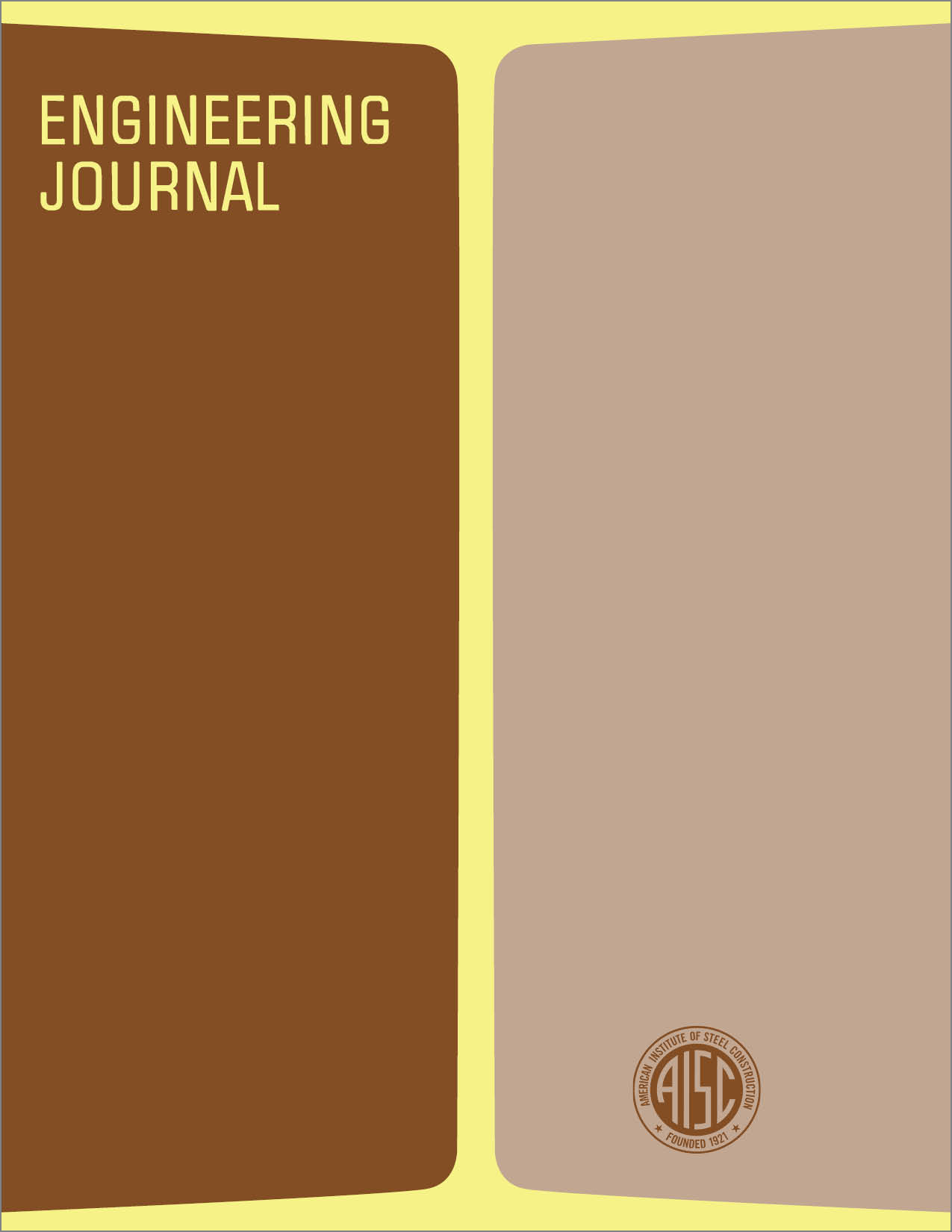Recent Developments in Steel Building Design
DOI:
https://doi.org/10.62913/engj.v10i4.217Abstract
Those engaged in the structural research that has been typical of many steel-industry-sponsored programs in recent years—and has been traditional at the Fritz Engineering Laboratory since its early days—have the advantage of working with an advisory committee. Beyond receiving suggestions for needed work this advantage has at least two ramifications: (1) There is always interest in the engineering application of a new approach that may arise from the research, and (2) the investigators cannot fail to be impressed with the necessary "constraints", among which are time and complexity. A new method that involves more design time, or is more complex in its application, must have a significant economic advantage before it can become a practical design tool. It is from this background that recent developments in steel building design are discussed in this paper. Which of the developments arising from research have a potential for improvement in design? Some of these applications are current. Some are in the future. Some of the source material goes beyond that resulting from the work of the writers and of their own institution. Not only does it include AISC-sponsored research, but also that of the American Iron and Steel Institute, Column Research Council, Research Council on Bolted and Riveted Structural Joints, and the National Science Foundation.

